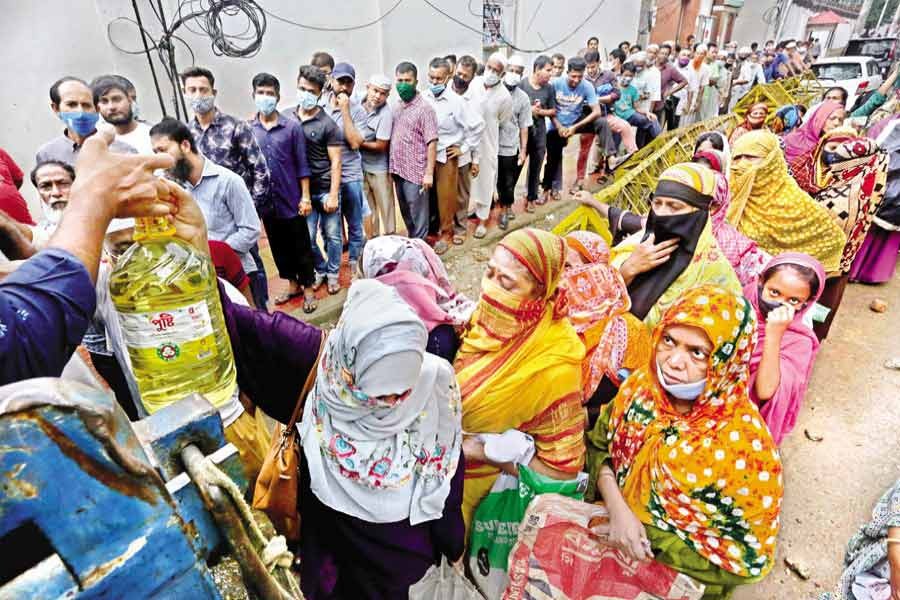The common perception that the rate of inflation is on the rise, as indicated by the soaring prices of essential commodities over the past months, has been corroborated by the latest official estimate. It is now calculated to be at 7.42 per cent, which is rather high compared to the previous government figures on the same. The general inflation rate in April, for example, according to the Bangladesh Bureau of Statistics (BBS), was 6.29 per cent, while in March it was 6.22 per cent. As reported in the Monday’s issue of this paper, the BBS study did come up with a Consumer Price Index (CPI) as high as 8.30 per cent in May. Thus, the latest findings of the BBS about the CPI and their reflection in inflation figure, which some economists believe are already in the double-digit range, have so far been the obvious elephant in the room that now has finally got the much needed official recognition.
In fact, this latest BBS estimate of the point-to-point inflation in May at 7.42 per cent is the highest ever since 2014. In that year, however, the inflation rate was 7.48, calculated on a month-on-month (MoM) basis. So, by all accounts, there is no denying the trend of a fast rising inflation in the economy. So, what follows from this new estimate of inflation is that the government should not waste any more time in meeting the issue head-on and adopt concrete measures to rein in the trend.
What is particularly worrying is that the factors, both domestic and international, behind the inflation are showing no sign of relenting in the near future. As the war situation in Ukraine is aggravating rather than improving, the fear is that the prevailing volatility in the world market of foodgrains, fuels and edible oils is going to continue indefinitely. That is for the simple reason that the supply of these essential commodities from Ukraine, one of the world's largest producers of wheat and edible oil, to the rest of the world has been severely disrupted due to the blockade imposed at the country's seaports. On the other hand, the pandemic, which is again showing signs of relapsing, may prove to be another contributing factor perpetuating the uncertainties in the global as well as local markets.
Now with the budget for the 2022-23 financial year in place, the government will be required to allocate its resources prudently for the upcoming fiscal year with an eye to cushioning the low-income and other vulnerable social groups against the impact of the rising inflation. As the BBS data also show, the rate of inflation in the countryside was as high as 7.94 per cent last month, while in the urban context it was rather low at 6.49 per cent. Evidently, the dichotomy is attributable to the higher food- price-related inflation in the rural areas than in the urban setting as recorded last month. In that event, a proper calibration of the fiscal measures would be crucial to protecting the rural poor seeing that the inflation has not been affecting populations in the urban and the rural settings equally. In view of the emerging realities, the government should prioritise food security of the poor. And, at the same time, further improve the existing distribution mechanism to extend the food and other kinds of government support to the rural as well as the urban poor.


